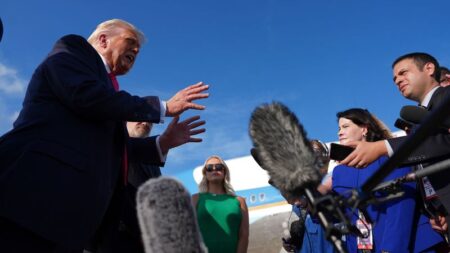2024 continues to be a year filled with global elections, with nations representing half of the world’s population heading to the polls. Incumbents are facing challenges due to the economic aftermath of the Covid-19 pandemic, scandals, and general voter discontent. Recent elections in France and Britain have shown voters utilizing tactical voting to bring about changes in their respective countries. In Iran, despite restrictions, voters managed to surprise by causing a hardliner to lose.
The global exercise of political self-determination has brought to light threats to democracy, the rule of law, and the rise of populist leaders. Some countries have seen leaders with authoritarian tendencies solidifying their power through elections, while in others, such as Russia, voters’ rights have been restricted to maintain current leadership.
In countries like El Salvador and Slovakia, leaders with authoritarian leanings have strengthened their grip on power through elections. Meanwhile, rising concerns are present in countries like Indonesia and Mexico, where newly elected leaders could potentially centralize authority and weaken democratic structures.
For leaders seeking reelection this year, signs are ominous as incumbency often leads to vulnerability, as demonstrated by a recent vote in South Africa. Developed societies are experiencing widespread distress due to cost-of-living crises. Populism is once again on the rise, reminiscent of events like Brexit and Donald Trump’s election.
However, examples of democracy’s resilience are also evident worldwide. From India to Senegal, free elections have been able to channel public discontent and drive change. Elections in Taiwan and South Korea have highlighted the ability of democratic processes to promote stable governance.
Looking ahead, the world is gearing up for the critical U.S. presidential election in November. President Joe Biden, weakened by a poor debate performance, is warning against a return to power by Trump, who contested the previous election’s results. Biden stresses the importance of preserving democratic principles globally.
Some notable election results in 2024 include far-right gains in European Parliament elections, particularly in France and Germany. French President Emmanuel Macron has called for new legislative elections to counter the threat of extremism. In the UK, the Conservative Party’s 14-year rule came to an end, with Keir Starmer leading the Labour Party to victory.
Furthermore, Indonesia saw Prabowo Subianto winning the presidential election, marking the start of a new era with potential challenges. Despite accusations of human rights abuses, Subianto has entered office as the leader of the world’s fourth most populous nation.
In India, Prime Minister Narendra Modi faced a surprising election outcome, highlighting the power of voters despite concerns over erosion of democratic values. The election also underscored the limitations of democracy in neighboring Pakistan, where a protest vote against the military resulted in a complex political landscape.
As elections continue globally, concerns about democratic standards are raised in countries like Mexico, El Salvador, and Russia. The resilience of democracy is tested in various regions, with each election shaping the future political landscape of these nations.










